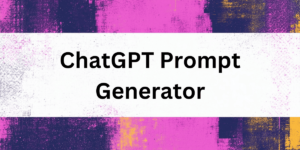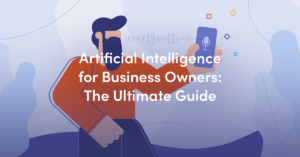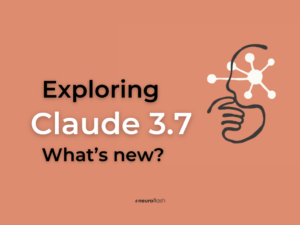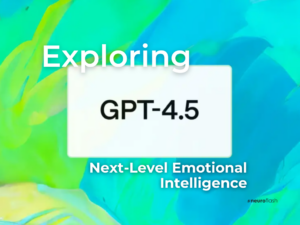Attention all internet users! Have you ever found yourself sifting through pages and pages of search results, frustrated by your inability to pinpoint exactly what you’re looking for? Keyword search may have been a game-changer in the early days of the internet, but now, with the rise of natural language processing (NLP) technology, there’s a more efficient way to navigate the vast world wide web. In this article, we’ll explore the problem with keyword search and how NLP offers a solution that’s smarter and more sophisticated. Tired of wasting time with tedious keyword searches? Say goodbye to frustration and hello to NLP.
1. Keyword Search vs NLP: A Comparison
Two different ways to find information online: Keyword search and NLP, or natural language processing. Keyword search is based on typing in specific words or phrases, such as “SEO” or “content marketing,” into a search engine like Google. The search engine then identifies web pages that have those words in them and displays them as search results.
On the other hand, NLP is a more advanced technology that understands the meaning behind words, phrases, and even whole sentences. It can analyze the language used in a search query and identify the entities or concepts being referred to. For example, if someone types in “best taco places near me,” an NLP system could understand that the searcher is looking for restaurants that serve tacos and are in their proximity.
While both approaches are used to search for information online, there are differences in their effectiveness. Keyword search is more straightforward and relies on specific words or phrases to find information. However, with the rise of online content, it can be easy to miss important information that doesn’t contain the exact keywords used in the search query.
NLP, on the other hand, is more advanced and can provide more relevant search results by detecting the meaning behind the words used in the search query. It can also identify related entities or concepts that may be relevant to the user’s search. This is especially important for SEO and marketing efforts, where identifying relevant keywords and entities can enhance the visibility and reach of content.
In conclusion, while keyword search is a useful tool for finding specific information online, NLP offers more sophisticated capabilities that can enhance the accuracy and relevance of search results. By understanding the differences between these two approaches, businesses and individuals can better optimize their search strategies to find the information they need.
To learn more about the role of NLP in SEO and marketing, and how to effectively incorporate it into your strategy, visit this link:
2. The Battle of Keyword Search and NLP
In the world of online search, there are two main players: keyword search and NLP or natural language processing. Keyword search is the more traditional way of searching for information online. It involves typing in specific keywords or phrases related to your query and seeing results based on exact matches for those words.
NLP, on the other hand, is a more advanced way of searching that uses language analysis to interpret more complex queries. NLP can understand the context and intent behind a query, allowing for more accurate and relevant search results.
The battle between these two methods of searching has been ongoing for years. While keyword search is still the more popular choice, NLP is rapidly gaining ground as more people turn to voice assistants and smart devices to search for information.
So what’s the difference between keyword search and NLP? The main difference is in how they process language. Keyword search relies heavily on exact word matches, while NLP can interpret more complex language patterns and understand the meaning behind a query.
In terms of SEO and marketing, keywords are still important for optimizing content and attracting organic traffic to a website. But as NLP becomes more prevalent, it’s important to consider how natural language and entities are incorporated into your content.
Overall, the battle between keyword search and NLP is ongoing, and it’s important to understand the differences and strengths of each method. It all comes down to what works best for your specific search needs and goals..
Natural language processing (NLP) offers a more advanced approach to search, understanding the nuances of human communication and providing more relevant results than traditional keyword-based engines. This enhances SEO and marketing efforts, making it essential for businesses and individuals to optimize their search strategies.
Discover why NLP is important for SEO
3. Understanding Keyword Search and NLP
Have you heard of keyword search and NLP? If you’re not sure what they are, don’t worry! These are two different ways of finding the information you’re looking for online.
A keyword search is when you type in a few words related to what you’re looking for, and the search engine gives you a list of results. For example, if you’re looking for information on pet care, you might type in “pet care tips” or “how to take care of a dog.”
NLP, on the other hand, stands for natural language processing. This is a more advanced technique where the search engine tries to understand the meaning behind your query, and provides more accurate results. It involves analyzing the language you use, and identifying entities and concepts related to your search.
So what’s the difference between these two techniques? Keyword search is more straightforward, but it can be limited. If the words you use don’t match the website’s content exactly, you might not find what you’re looking for. NLP provides more nuanced results, but it can be harder for the search engine to understand what you’re asking for.
Both keyword search and NLP are important for SEO and marketing. By using the right keywords, you can make sure your website shows up in search results. And by using NLP, you can understand what people are asking for and create content that answers their questions.
When it comes to choosing between keyword search and NLP, it really depends on what you’re looking for. If you’re looking for something specific and don’t mind sifting through lots of results, keyword search might be the way to go. But if you’re looking for more in-depth information and want more accurate results, NLP is worth considering..
To learn more about optimizing your content for both keyword search and NLP methods in terms of SEO and marketing, visit our informative guide on creating convincing SEO texts:
4. Unveiling the Difference: Keyword Search vs NLP
Keyword search and Natural Language Processing (NLP) might seem similar, but they are quite different from each other. Keyword search involves typing in queries containing specific words or phrases, which then generates a list of results containing those keywords. NLP, on the other hand, involves analyzing the language used in the query and generating results based on the understanding of the meaning behind the words.
This means that keyword search is more straightforward, while NLP requires a deeper understanding of language and context. For example, a keyword search for “car” would generate results related to the word “car,” while an NLP analysis would generate results related to “automobiles” or “vehicles” as well.
In terms of SEO and marketing, keyword search is still important for ranking high on search engine results pages (SERPs). However, as NLP technology improves, understanding entities and context becomes increasingly important for ranking high. Google has been moving towards a more NLP-based approach in recent years, prioritizing content that answers questions and provides valuable information over the use of specific keywords.
In conclusion, while keyword search and NLP might seem similar, they are quite different from each other. Keyword search is more straightforward, while NLP requires a deeper understanding of language and context. As technology improves, the importance of NLP in SEO and marketing will continue to grow, making it crucial for businesses to understand the difference between the two and incorporate both into their strategies..
To gain deeper insight into NLP and its benefits over keyword search, consider reading more about how natural language processing algorithms can effectively understand the complexities of human communication, a feature that traditional keyword-based search engines lack.
Discover why NLP search engines outperform traditional keyword searches
5. Keyword Search vs NLP: Which One Wins?
Are two methods used to extract information from text or data. Keyword search refers to the process of searching for specific words or phrases that match a query. On the other hand, NLP involves a more advanced process that analyzes the context and meaning of words in order to comprehend the underlying message.
Keywords are the foundation of keyword search. These are the words that people enter into search engines like Google when looking for information. Keyword search queries are a great way to quickly find information on a particular topic. However, they have their limitations. Keyword searches work best when the search terms are focused and specific. If the keywords are too broad or general, the results can be irrelevant or overwhelming.
NLP, on the other hand, takes a more nuanced approach. Rather than just looking for specific words, NLP algorithms analyze the entire content and language of the text. This allows NLP to extract entities and information that might not be explicitly stated in the text.
When it comes to marketing and SEO, both keyword search and NLP are important. Keywords are still the backbone of SEO and content marketing, but NLP provides a more sophisticated way to comprehend and analyze data.
In conclusion, the battle between keyword search and NLP is not one that can be won by either side. Each method has its own strengths and limitations, and the best approach depends on the specific needs and goals of the user. Whether you are using keyword search or NLP, it’s important to understand their differences and when to use each method to achieve the best results..
Useful tips
- Tip 1: Understand the difference between keyword search and NLP. Keyword search is a process where a user searches for specific, predetermined words or phrases to find relevant content. NLP, on the other hand, is a process of understanding natural language and its context to extract meaning.
- Tip 2: Use keyword search for specific queries where you know exactly what you’re looking for. For instance, if you’re searching for a product name or a recipe, using keywords will give you more accurate results.
- Tip 3: Utilize NLP when searching for more complex queries. NLP can help you find related content that may not use the exact keywords you’re searching for, but still answer your query.
- Tip 4: Combine both techniques for more nuanced search results. Use keyword search to find broad topics and use NLP to narrow down the results and find more specific content.
- Tip 5: Keep up-to-date with NLP advancements to stay competitive in the search field. As NLP continues to evolve, it will become even more important to use this technology to stay ahead of the curve in content discovery and extraction.
Other People asked
What is the difference between keyword search and NLP?
Keyword search and Natural Language Processing or NLP are two different ways of searching and retrieving information from content. Keyword search takes into account specific words or phrases that are relevant to the content being searched. On the other hand, NLP uses algorithms to understand the meaning behind words and phrases and then retrieves information based on the context of the search query. NLP is a more advanced method that allows for a more accurate and personalized search experience. While keyword search is still widely used, NLP is becoming increasingly popular, particularly in applications like virtual assistants, chatbots, and voice search.
What are some advantages of using keyword search?
Keyword search has been around for decades and is still widely used today. It offers several advantages, including simplicity, speed, and a widespread user adoption. It is relatively easy for users to formulate keyword queries, and search engines can process those queries quickly and efficiently. Keyword search also has a low barrier to entry, making it accessible to users of all skill levels. Furthermore, the use of keywords can help users discover new and relevant content they may not have found otherwise.
What are some disadvantages of using keyword search?
While keyword search offers several advantages, it also has its limitations. One of the significant disadvantages of keyword search is that it relies on the user to formulate the correct query. If the user misses a necessary keyword, the search results will likely be incomplete or irrelevant. Additionally, keyword search does not account for natural language variations, colloquialisms, or nuances, which can lead to false negatives or irrelevant results. Finally, keyword search cannot infer intent, and as a result, it may deliver results that are only loosely related to the user’s actual needs.
What are some advantages of using NLP?
NLP offers several advantages over keyword search, particularly in applications like virtual assistants, chatbots, and voice search. One of the most significant advantages is its ability to understand natural language, allowing users to search for information using full sentences or even questions. NLP can also account for nuance and context, leading to more accurate results. Additionally, NLP can infer intent, offering users more personalized and relevant search results that are tailored to their specific needs. Finally, NLP offers a more seamless and intuitive user experience that mimics human conversation more closely.
What are some potential disadvantages of using NLP?
Despite its many advantages, NLP is not without its potential downsides. One of the most significant disadvantages is that it is a more advanced technology that requires more significant investment and development. As a result, some organizations may find it challenging to implement NLP. Additionally, the accuracy of NLP can be compromised by certain factors, such as variability in language or ambiguity in phrasing. Finally, NLP may present privacy and security risks, particularly in applications like voice search where sensitive information may be inadvertently shared or vulnerable to interception.
Related Questions
Does Google search use NLP?
Yes, Google search uses Natural Language Processing (NLP) techniques to understand the intent behind the user search query. With NLP, Google can better serve relevant and accurate search results based on context and user intent. NLP helps Google understand the meaning of the search query and the intent behind it even if keywords are phrased differently from common language usage. This is how Google provides search suggestions and conversational search features. NLP also makes it easier for Google to provide enhanced results, such as featured snippets, knowledge graphs, and voice search results.
Do search engines use NLP?
Yes, search engines use Natural Language Processing (NLP) to understand the user’s intent behind the search query and provide the most relevant results. Implementing NLP techniques, search engines can better understand natural language queries and provide search results that match the user’s intent. This is critical because sometimes users don’t use the exact keywords that match their search intent. With NLP, search engines can better handle these natural language queries and provide accurate results.
What is NLP on SEO?
Natural Language Processing (NLP) is an essential component of Search Engine Optimization (SEO) that helps search engines understand the intent behind a user’s query. NLP used in SEO involves analyzing the language of the user’s query, determining the user’s intent, and providing relevant content that meets that intent. This helps search engines like Google to match search queries with the most appropriate search results, including featured snippets and knowledge graphs. SEO experts use NLP to optimize website content, using natural language phrases in their content to match the user’s intent behind the search query.
Is NLP and speech recognition the same?
No, Natural Language Processing (NLP) and Speech Recognition are not the same things. NLP is the ability of a computer to process and understand human language, including spoken and written language. In contrast, speech recognition is the ability of a computer to recognize and transcribe human speech into text. While both technologies use machine learning algorithms, speech recognition is a subset of NLP and is concerned only with transcribing human speech, while NLP is concerned with understanding natural language across multiple modalities, including written text, spoken language, and more.
Conclusion
In conclusion, the debate between keyword search and NLP (Natural Language Processing) is a never-ending one. While keyword search is efficient in retrieving specific information, NLP has changed the way we search for and interpret data. With NLP, search results are more accurate and refined, allowing better decision-making. However, the effectiveness of NLP also depends on the quality of the data set being used. Therefore, in some cases, keyword search may still be necessary to locate information. The main learning from this article is that both methods have their advantages and disadvantages, and it is up to the user to determine which method is best suited for their needs.
















